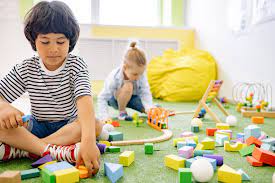Unlocking the Power of Play: Classic Toys and Child Development
In today’s world, children are often bombarded with a wide array of electronic gadgets and technology-driven toys. While these modern toys certainly have their benefits, it is important not to overlook the power of classic toys in a child’s development. Play is a child’s work, and the toys they engage with can have a profound impact on their growth and learning. Classic toys hold a special place in this process, promoting imagination, creativity, and cognitive development. In this article, we will explore the power of classic toys in unlocking a child’s potential.
Classic toys are characterized by their simplicity and timeless appeal. They have been popular for generations and have stood the test of time. Unlike many modern toys that come with pre-programmed features and limited possibilities, classic toys encourage open-ended play. Take, for example, building blocks. These simple wooden or plastic blocks allow children to explore the world of engineering, design, and problem-solving. They can build towers, bridges, and houses, giving them a sense of accomplishment and boosting their self-esteem. As they manipulate the blocks, children develop fine motor skills and hand-eye coordination. Moreover, building blocks teach children about spatial relationships and basic physics concepts like balance and symmetry.
Another classic toy that has stood the test of time is the puzzle. Puzzles come in various forms, such as jigsaw puzzles, wooden puzzles, and even 3D puzzles. These toys challenge children to use their logical thinking and problem-solving skills. As they sort through and assemble the pieces, children develop patience and perseverance. Puzzles also promote visual-spatial reasoning, hand-eye coordination, and shape recognition. Additionally, puzzles can foster cognitive skills such as memory, attention, and concentration. The act of completing a puzzle gives children a sense of accomplishment and boosts their confidence, preparing them for future challenges.

Playing with dolls or action figures is another classic play activity that has immense developmental benefits. These toys allow children to engage in pretend play, creating their own narratives and exploring different roles and scenarios. Through imaginative play, children develop empathy, communication skills, and social awareness. They learn to express their thoughts and emotions, negotiate and cooperate with others, and experience different perspectives. Doll play also helps children develop their fine motor skills as they dress and undress the dolls, practice self-care routines, and engage in imaginative tasks.
Classics like teddy bears and stuffed animals provide comfort and companionship for children, allowing them to explore their emotions and develop secure attachments. These soft toys can become a child’s best friend, confidant, and source of comfort during challenging times. Children often engage in dramatic play with their stuffed animals, imitating real-life situations, and exploring different emotions. This type of play promotes emotional intelligence, self-regulation, and empathy.
Furthermore, board games have long been a favorite activity for families and friends to enjoy together. These games promote social interaction, cooperation, and healthy competition. As children engage in board games, they learn to take turns, follow rules, strategize, and make decisions. This type of play also helps children develop their language skills as they engage in conversation, follow instructions, and identify elements on the game board. Board games encourage critical thinking, problem-solving, and logical reasoning. Moreover, they foster resilience and teach children how to lose gracefully and handle disappointment.
The power of classic toys in child development cannot be underestimated. These timeless toys foster imagination, creativity, and cognitive growth. They promote open-ended play and allow children to explore and discover at their own pace. Classic toys encourage the development of fine motor skills, hand-eye coordination, logical thinking, problem-solving abilities, empathy, communication skills, and social awareness. They provide a foundation for essential life skills and lay the groundwork for future academic and social success.
Unwrapping Happiness: The Joyful Ritual of Toy Unboxing
In a world filled with technological distractions, it is crucial to remember the value of classic toys in a child’s development. As parents and caregivers, we should strive to provide opportunities for children to engage with these timeless toys. By doing so, we unlock the power of play and create an environment where children can grow, learn, and thrive.

